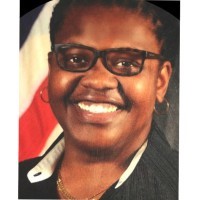Women in Leadership Profile: Brittany Barnwell
By Deb Moller
 To be an effective emergency manager, it helps to be an insider. After all, insiders speak the same language, rely on the same tactics, share a history, exercise together. They learn from each other in after action reviews. They count on the kind of trust that comes with promises made and promises kept over many years. Brittany Barnwell worked as an insider emergency manager in Bamberg County, South Carolina. Even now, over a year into her transition to advising Seattle City Lights on emergency management, Brittany knows she can still call on the people she relied on in her old job for help if she needs it. That comes with solid relationships.
To be an effective emergency manager, it helps to be an insider. After all, insiders speak the same language, rely on the same tactics, share a history, exercise together. They learn from each other in after action reviews. They count on the kind of trust that comes with promises made and promises kept over many years. Brittany Barnwell worked as an insider emergency manager in Bamberg County, South Carolina. Even now, over a year into her transition to advising Seattle City Lights on emergency management, Brittany knows she can still call on the people she relied on in her old job for help if she needs it. That comes with solid relationships.
Brittany Barnwell thinks that to be an effective emergency manager, it can also help to be an outsider. Practices and assumptions that surprise her may be ones that some insiders no longer pay much attention to. In emergency management, it is always helpful to revisit how things are done before a disaster forces a more painful recognition that plans might have been better. Her experience in an environment of frequent activations to respond to hurricanes and severe flooding in South Carolina means she is used to ongoing real-life testing and refinement of emergency plans. She finds the Seattle area a place where both disasters and activations aren’t as common. In the absence of extra exercising and training, that can be a problem for true preparedness. It is one she tries hard to address in her role with Seattle City Lights.
Brittany sees the Cascadia earthquake threat as particularly ominous since there won’t be any warning when the rupture comes. While she understands what a difficult year it has been for emergency managers, she was disappointed that the large Cascadia earthquake exercise was cancelled. She just hopes any possibility of the earthquake happening soon has also been cancelled.
Brittany knows students entering emergency management will always feel like outsiders as they become fluent in the language of the field and work to build relationships and trust. Her advice is to find a mentor to help weave them into the web of insiders they’ll be working with. She hopes the insiders in the field will take advantage of what newer workers and temporary outsiders bring to the table. After all, true situational awareness, a north star of emergency management, is far easier to achieve when people with “new eyes” are part of the conversation. Critical insight into the whole community, a key to effective response and recovery, comes when a wide variety of perspectives are included in planning and operations. Just as there is no way to surge trust, there is no way to skip a period of being an outsider in a new role. The more demanding the job, and the more partners one needs to collaborate with, the longer it will take. Starting a new job during a pandemic can slow things down even further. In her positive, can-do approach to her work, Brittany sees the opportunity in the
challenging phase of transition. She is proactive in reaching out to others. In meetings, she is comfortable contributing what she sees with her “outsider” eyes. In another year or so, when her colleagues can hardly remember when Brittany wasn’t part of Seattle’s emergency management infrastructure, her ever-deepening knowledge of the area will lead to a different type of contributions. The insider kind.

Deb Moller is the former public-private partnerships manager at the Oregon Office of Emergency Management. She is a senior fellow at the Center of Excellence, Homeland Security -Emergency Management. As principal of Moller Consulting, Deb has over ten years of experience assisting local, state, federal and tribal governments, as well as private profit and not-for-profit organizations, achieve performance goals. Deb’s experience includes twenty years designing and managing adult education and job training programs for marginalized populations. She holds an M.A. in applied behavioral science from Bastyr University. She is the founder of Cascadia Calling, a community based earthquake preparedness organization.
Disclaimer
Information on this profile is provided with the understanding that the authors and publishers are not engaged in rendering professional advice or services. As such, it should not be used as a substitute for consultation with an professional adviser. Opinions expressed here represent the viewpoints of individuals authoring the profile and do not necessarily reflect the opinions or views of the Center of Excellence.

